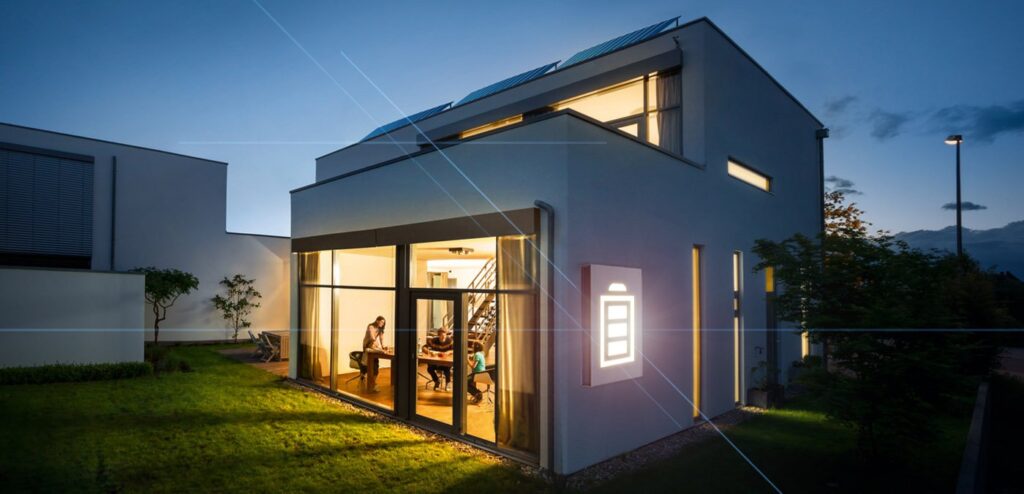Several types of storage batteries are suitable for use in home energy storage systems, each with its own advantages and considerations.
- Lithium-Ion Batteries: Lithium-ion batteries are popular for home energy storage due to their high energy density, long cycle life, and relatively low maintenance requirements. They are available in various chemistries such as lithium iron phosphate (LiFePO4), lithium nickel manganese cobalt oxide (NMC), and lithium nickel cobalt aluminum oxide (NCA). These batteries are well-suited for applications requiring frequent charge and discharge cycles, making them ideal for residential solar energy storage systems.
- Lead-Acid Batteries: Lead-acid batteries, including flooded lead-acid and valve-regulated lead-acid (VRLA) batteries, have been used for many years in home energy storage systems. They are relatively inexpensive and widely available, making them a cost-effective option for certain applications. However, they typically have lower energy density and shorter cycle life compared to lithium-ion batteries.
- Flow Batteries: Flow batteries, such as vanadium redox flow batteries (VRFBs), are another option for home energy storage. These batteries store energy in liquid electrolytes contained in separate tanks, allowing for scalable and flexible storage capacity. Flow batteries are known for their long cycle life and the ability to discharge completely without causing damage, making them suitable for stationary energy storage applications.
- Nickel-Iron Batteries: Nickel-iron (NiFe) batteries, also known as Edison batteries, have a long history and are known for their durability and longevity. They have a very long cycle life and can withstand deep discharges without significant degradation. While they have a lower energy density and higher self-discharge rate compared to other battery types, they are valued for their robustness and longevity in off-grid and remote applications.
- Lithium Iron Phosphate (LiFePO4) Batteries: LiFePO4 batteries are a specific type of lithium-ion battery known for their safety, stability, and long cycle life. They are resistant to thermal runaway and do not contain cobalt, making them a safer and more environmentally friendly option. LiFePO4 batteries are commonly used in residential energy storage systems, particularly in applications where safety and longevity are prioritized.
The choice of battery for a home energy storage system depends on factors such as the system’s capacity requirements, budget, space constraints, expected usage patterns, and desired lifespan. It’s essential to carefully evaluate the characteristics of each battery type and consider factors such as energy efficiency, maintenance requirements, safety, and environmental impact when selecting the most suitable option for a specific application.


